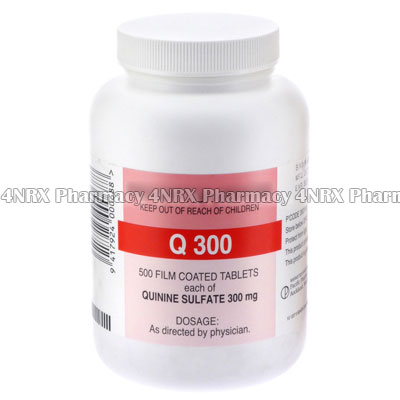 |
Home  General Health General Health  Quinine Sulfate Quinine Sulfate |
|
|||||||||
|
|
Quinine Sulfate
What is Quinine Sulfate used for? Quinine Sulfate is an oral medication prescribed for the treatment or prevention of malaria. It operates by preventing the reproduction of parasites in the blood while destroying their larvae allowing them to be eliminated from the body. This infection is normally contracted through a mosquito bite located in high risk areas. Your doctor may also prescribe its use for the treatment of other unlisted conditions. How should I use Quinine Sulfate? Quinine Sulfate should be used according to your doctor`s instructions to get the most effective results from treatment. After contracting malaria one tablet is normally administered every eight hours for three to seven days. The best dosage will be determined by your doctor based on your age, weight, health condition, and the severity of your symptoms. These should be swallowed with a full glass of water after a meal to prevent nausea. Never split, crush, or chew the tablets prior to use as this may destroy or alter the effects of their contents. Ask your pharmacist or doctor any questions you have about the medicine to ensure the correct administration. What are the side effects of Quinine Sulfate? Side effects that may occur while using Quinine Sulfate include:
Serious side effects that may require emergency medical attention are severe headaches, fever, flu symptoms, sensitive skin, easier bruising, leg pain, chest pain, irregular heartbeats, severe back pain, low blood sugar levels, loss of appetite, darkened urine, discoloured stools, jaundice, or signs of an allergic reaction such as hives, swelling, or difficulty breathing. Inform your doctor as soon as you experience any worrying or intense symptoms to make sure the correct alterations are made to your dosage or application frequency to prevent further health complications from occurring. Please Note Quinine Sulfate should not be used to treat patients who are pregnant, breastfeeding, or who have tinnitus, myasthenia gravis, optic neuritis, or blood appearing in the urine. Serious side effects that may require emergency medical attention are atrial fibrillation, G6PD deficiency, heat block, or heart disease as these conditions may cause complications requiring special adjustments to your treatment. Strictly use Quinine Sulfate as prescribed and follow all instructions provided by your doctor. Safe, suitable, and optimum dosage can vary and is dependent on the patient`s health and medical history, as well as the condition you are treating. Quinine Sulfate may not be safe or suitable for all patients. Always ensure your doctor is informed if you are pregnant or breastfeeding, using any other type of medication (including non-prescription medicine, vitamins, and supplements), as well as if you have any allergies, other illnesses, or pre-existing medication conditions. Seek immediate medical attention or proceed to your nearest accident and emergency department if you suffer a hypersensitive or allergic reaction. Symptoms usually present during a reaction of this nature include difficulty breathing or swallowing, swelling of the limbs or face, tight chest, hives, and skin rashes. 
|
||||||||||||||||||